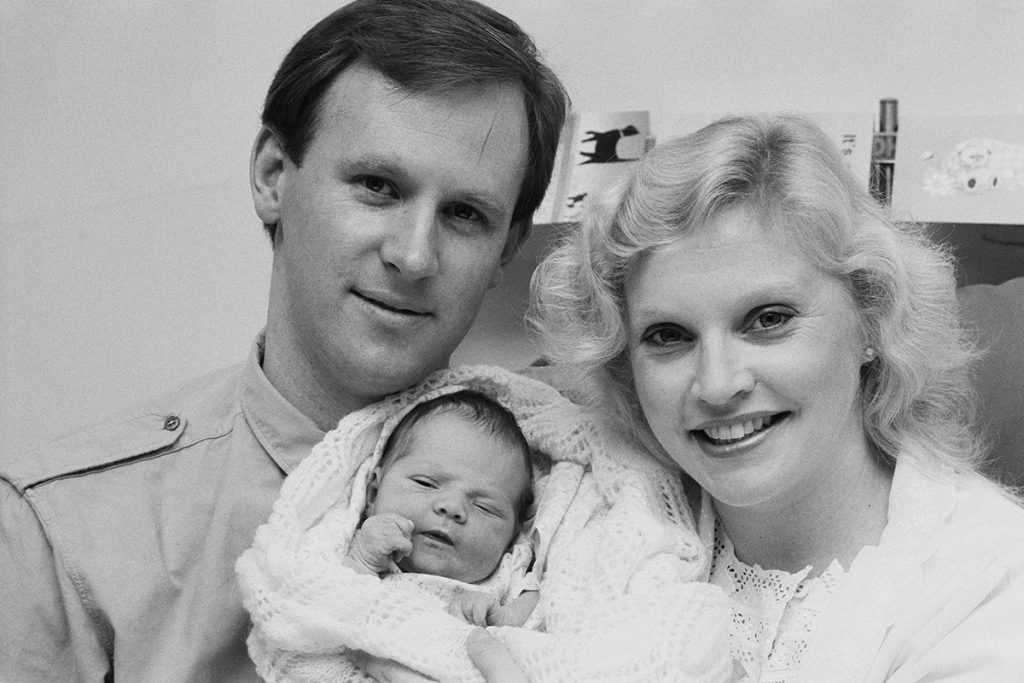Understanding Cervical Cancer & the Pap Smear
- Since being diagnosed with cervical cancer in 2018, Georgia Tennant, wife of beloved Doctor Who actor David Tennant, has used her platform to promote the importance of Pap smears.
- Cervical cancer is typically detected through a routine Pap smear.
- During this test, your doctor will collect a sample of cells from your cervix (using a small brush or spatula). The cells are then examined under a microscope for abnormalities, including cancer and changes that could indicate pre-cancer.
(Fun fact: Georgia, 37, who's from London, England, is also the daughter of the fifth-ever Doctor Who, Peter Davison!)
Read More
Georgia Tennant's Cancer Diagnosis
According to her blog, Public Cervix Announcement, Georgia was going through a routine check-up when doctors discovered early signs of cervical cancer.Naturally, the news frightened her, but luckily, doctors caught it early enough and she was able to undergo surgery to remove the cancer before it began to spread to other parts of her body, which happens once cancer has reached its later stages.
Now, Georgia uses her brush with the disease to urge more women to schedule regular Pap smears so if there's signs of the cancer, it can be removed before it progresses.

"What if I hadn't made that appointment? What if I hadn't responded to the 2 letters I received from our NHS (National Health Service in the United Kingdom, which is where she lives) telling me I was due a smear?" Georgia posted to her blog in 2018. "Don't be scared. Please get checked. Just, please."
View this post on Instagram
Understanding Cervical Cancer
Cervical cancer is a type of gynecologic cancer that’s typically detected through a routine Pap smear.
While it’s unknown what caused Georgia’s cancer, it’s known that the human papillomavirus, or HPV, causes more than 70% of cervical cancer cases.
HPV is the most common sexually transmitted infection. In fact, it’s so common that nearly all sexually active men and women get the virus at some point in their lives, according to the U.S. Centers for Disease Control and Prevention. About 79 million Americans have HPV.
HPV and Cancer Risk: The Basics
"The vast majority of humans in the U.S., both men and women, will eventually get infected with human papillomavirus," Dr. Allen Ho, director of the Head and Neck Cancer Program at Cedars-Sinai Medical Center, previously told SurvivorNet. "The important thing to know about HPV is that there are many different strains, and only a couple of them tend to be more cancer inducing. Probably less than 1 percent of the population who get infected happen to have the cancer-causing virus that, somehow, their immune system fails to clear."
Cervical cancer is unique in that it’s usually preventable with the HPV vaccine. And that’s why those eligible should get vaccinated against HPV, according to SurvivorNet experts.
The vaccine is typically given to children before they are sexually active, as HPV is transmitted through sexual contact.
Why the HPV Vaccine is so Important in Preventing Cancer
"We recommend strongly that children are vaccinated against HPV to prevent cervical cancer, but also to prevent head and neck cancer," Dr. Jessica Geiger, a medical oncologist specializing in head and neck cancer at Cleveland Clinic Cancer Center, previously told SurvivorNet.
"Now the key with the vaccine is that you received the vaccine before you ever reach sexual debut or have sexual encounters. So that's why these vaccines are approved for young children ages 9, 10, 11 years old, up to 26,” she added.
Contrary to some detrimental misinformation circulated online, the HPV vaccine is entirely safe. There are virtually no side effects with this vaccine, Dr. Jonathan Berek, director of the Women's Cancer Center at Stanford Medical Center, told SurvivorNet.
It’s "incredibly safe," he added.
Contributing: Shelby Black
Learn more about SurvivorNet's rigorous medical review process.


